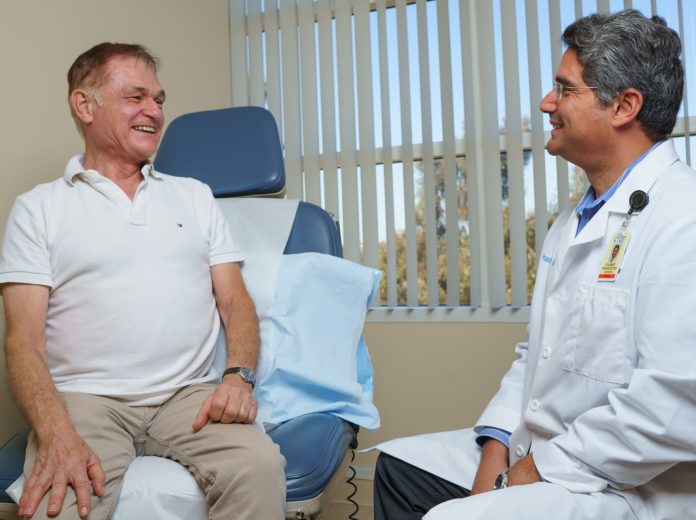In the past 30 years, advances in technology and treatment have significantly increased cancer survival rates.
However, despite progress in early detection methods, more men than women are likely to ignore cancer symptoms.
Dr. Barry Uhl, a radiation oncologist affiliated with Sharp Grossmont Hospital, says that men are also less likely to see a doctor on their own to get important screenings that detect cancer.
10 possible cancer symptoms men are likely to ignore
In the past 30 years, advances in technology and treatment have significantly increased cancer survival rates.
However, despite progress in early detection methods, more men than women are likely to ignore cancer symptoms.
Dr. Barry Uhl, a radiation oncologist affiliated with Sharp Grossmont Hospital, says that men are also less likely to see a doctor on their own to get important screenings that detect cancer.
10 possible cancer symptoms men are likely to ignore
While some signs are very specific, other symptoms are vague and shouldn’t be ruled out as cancer without seeing a doctor.
Breast mass
Although breast cancer in men is not common, it’s still possible. Any new mass or changes in the breast area should be checked by a doctor.
Change in testicles
The American Cancer Society recommends a testicular exam as part of men’s routine checkups.
Weight loss without trying
Shedding a few pounds through diet and exercise generally is no cause for concern. However, if a man unexpectedly loses more than 10 percent of his body weight within a period of three to six months, he should see a doctor.
Abdominal pain and depression
Experts have found a link between these symptoms and pancreatic cancer. Other symptoms may include jaundice, changes in stool color and darkening of the urine.
Persistent cough
A cough lasting more than three to four weeks, or a change in cough is cause for concern and should be examined by a doctor. In addition to a symptom of cancer, these cough patterns could indicate other chronic conditions.
Difficulty swallowing
Don’t ignore trouble with swallowing, as it could be a sign of a gastrointestinal cancer such as esophageal cancer. A doctor can evaluate symptoms based on history and may also order an X-ray or barium swallow test.
Changes in skin
In addition to changes in moles, sudden bleeding or excessive scaling on skin should be examined by a doctor.
Unexpected bleeding
Make an appointment with your doctor when blood appears unexpectedly, such as when coughing or spitting. In addition, blood in the stool can be a sign of colon cancer.
Mouth changes
If you smoke or chew tobacco, pay attention to any white patches in the mouth or white spots on the tongue. These changes should be reported to your dentist or doctor.
Urinary problems
As men age, they are more susceptible to urinary problems such as frequent urge, difficulty urinating, urine leakage and weakened urine flow. Once symptoms occur, medical attention is needed, especially if symptoms get worse.
Dr. Uhl recommends self-care, including awareness of cancer symptoms and preventive lifestyle choices — quit smoking, manage weight, drink alcohol in moderation, practice sun safety and exercise.
Early detection can reduce the number of cancer deaths and increase the chances of successful treatment. Talk to your health care provider if you experience any of these cancer warning signs or have one or more risk factors and have any concerns.













